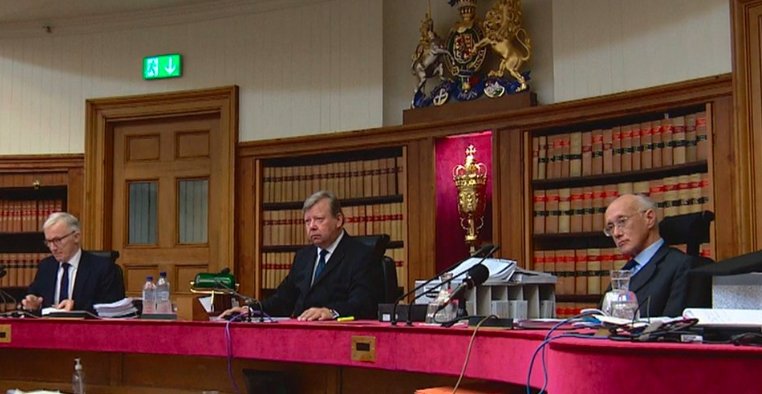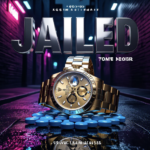Scotland’s parliament made a bold move on September 17, 2025, when it voted to scrap the controversial not proven verdict in criminal trials. This change, part of a major justice overhaul, aims to deliver better outcomes for rape survivors and other victims who have long faced uncertainty in the courts.
The decision ends a centuries-old practice that many saw as a barrier to justice, especially in sexual offence cases where conviction rates remain low. Lawmakers approved the Victims, Witnesses and Justice Reform Bill by 71 votes to 46, marking a victory for campaigners who fought for years to reform the system.
The Roots of the Not Proven Verdict
Scotland stands alone in Europe with its three-verdict system: guilty, not guilty, and not proven. This third option dates back to the 17th century and acts like a not guilty in effect, freeing the accused but leaving a cloud of doubt.
Critics have called it a cop out for juries unsure about the evidence. In practice, it often appears in tough cases where proof falls short, but it hits hardest in rape trials. For survivors, hearing not proven can feel like a second betrayal, as it offers no clear closure.
Over the years, families of victims and advocacy groups pushed hard against it. One key voice came from a survivor known as Miss M, whose own case ended in not proven a decade ago. Her story sparked wider calls for change, highlighting how the verdict lets offenders walk away without full accountability.

A Win for Survivors in Sexual Offence Cases
Rape survivors in Scotland have endured low conviction rates for too long. In 2022-23, only 48 percent of rape and attempted rape cases led to convictions, the lowest rate among all crimes.1
This reform directly tackles that issue by simplifying verdicts to just guilty or not guilty. Campaigners like those from Rape Crisis Scotland celebrated the move, saying it gives survivors back their voice.3 Miss M, who watched her attacker go free, now sees her tireless efforts pay off in a system designed to prioritize victims.
The change builds on recent shifts, like last year’s end to the corroboration rule in sexual abuse cases, which required two pieces of evidence for prosecution. These steps show Scotland’s growing focus on supporting women and addressing deep-rooted biases in the courts.
Experts note that not proven has been disproportionately used in sexual offences, reflecting jury hesitancy around such sensitive topics. By removing it, the law hopes to boost trust and encourage more reports, as survivors feel the system might finally work in their favor.
Key Reforms in the New Justice Bill
The bill goes beyond just verdicts to reshape how courts handle victims. It introduces several measures to make trials fairer and less traumatic.
Here are some of the main changes:
- A specialist sexual offences court to speed up cases and provide trauma-informed training for staff.
- Automatic lifelong anonymity for victims of rape and other sexual crimes, plus free court transcripts.
- An independent victims and witnesses commissioner to oversee standards and support.
- Suzanne’s Law, which requires the parole board to consider if a killer has revealed a victim’s body location before granting release.
These reforms aim to cut backlogs and protect vulnerable witnesses, like allowing video links for testimony. Justice Secretary Angela Constance called it a historic step to put victims at the heart of a modern system.
One concern lingers: the bill raises the bar for guilty verdicts to a two-thirds jury majority from the old simple majority. While this protects against wrongful convictions, groups worry it could make rape cases even harder to win, given existing prejudices.
Reactions from All Sides of the Debate
Support poured in from survivors and charities after the vote. Victim Support Scotland hailed it as a momentous occasion that prioritizes those impacted by crime.4 Sandy Brindley of Rape Crisis Scotland praised the not proven scrap but flagged risks from the higher jury threshold, saying it might worsen low conviction rates.
Opposition came from Labour and Conservative MSPs, who voted against the bill despite backing the verdict change. They argued the package was too rushed and broad, with not enough evidence for parts like the new court. Lawyers from the Law Society of Scotland echoed fears of miscarriages of justice under the new jury rules.
On social media, reactions mixed triumph with caution. Posts on X highlighted the win for survivors, while some debated if the changes go far enough. Recent events, like dropped plans for juryless rape trials due to backlash, show the balance between reform and rights.
This overhaul ties into broader UK trends, such as England’s push for better victim support amid rising sexual offence reports. In Scotland, it could inspire more women to come forward, knowing the system has evolved.
Old vs New: A Quick Comparison of Court Rules
To see the impact clearly, here’s a table comparing key aspects of Scotland’s justice system before and after the reforms:
| Aspect | Before the Reforms | After the Reforms |
|---|---|---|
| Possible Verdicts | Guilty, Not Guilty, Not Proven | Guilty, Not Guilty only |
| Jury Majority for Guilty | Simple majority (8 out of 15 jurors) | Two-thirds majority (10 out of 15 jurors) |
| Anonymity for Victims | Limited, case by case | Automatic lifelong for sexual offence victims |
| Sexual Offence Handling | Standard courts with backlogs | Specialist court with trauma training |
| Parole Consideration | No specific rule on victim’s remains | Suzanne’s Law requires consideration |
This shift simplifies decisions and adds protections, but experts predict it will take time to measure real effects on conviction rates.
Looking Ahead to Implementation
The bill now awaits royal assent, with changes rolling out in phases. The not proven scrap could happen soon, while setting up the sexual offences court might take longer due to logistics.
Lawmakers plan research on jury behavior in rape cases to refine the system further. For now, this reform stands as a beacon of progress, addressing long-standing flaws that hurt survivors most.
As Scotland moves forward, these changes could set a model for other regions grappling with similar issues. Survivors like Miss M remind us why persistence matters in the fight for justice.
Share your thoughts on this landmark reform in the comments below, and help spread the word to support victims everywhere.


















